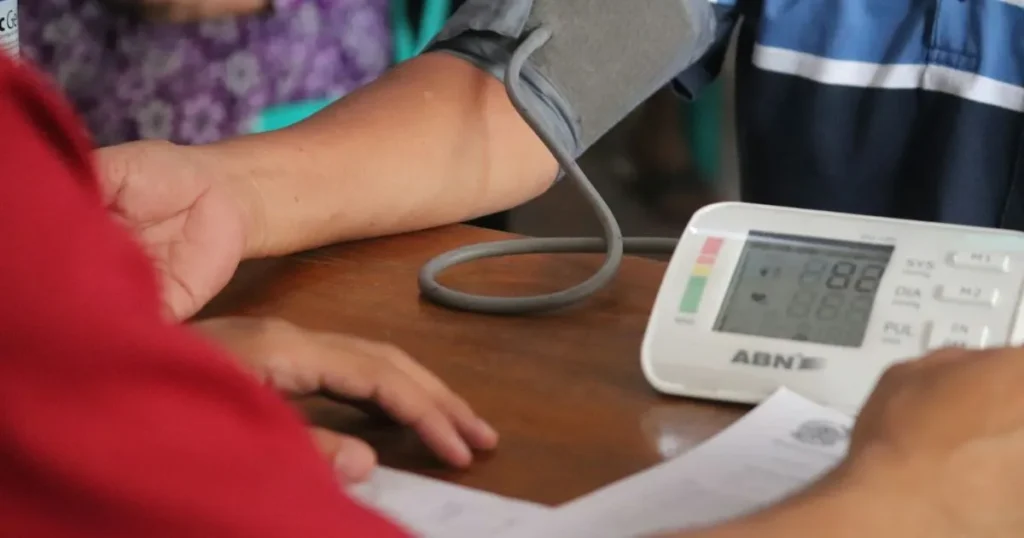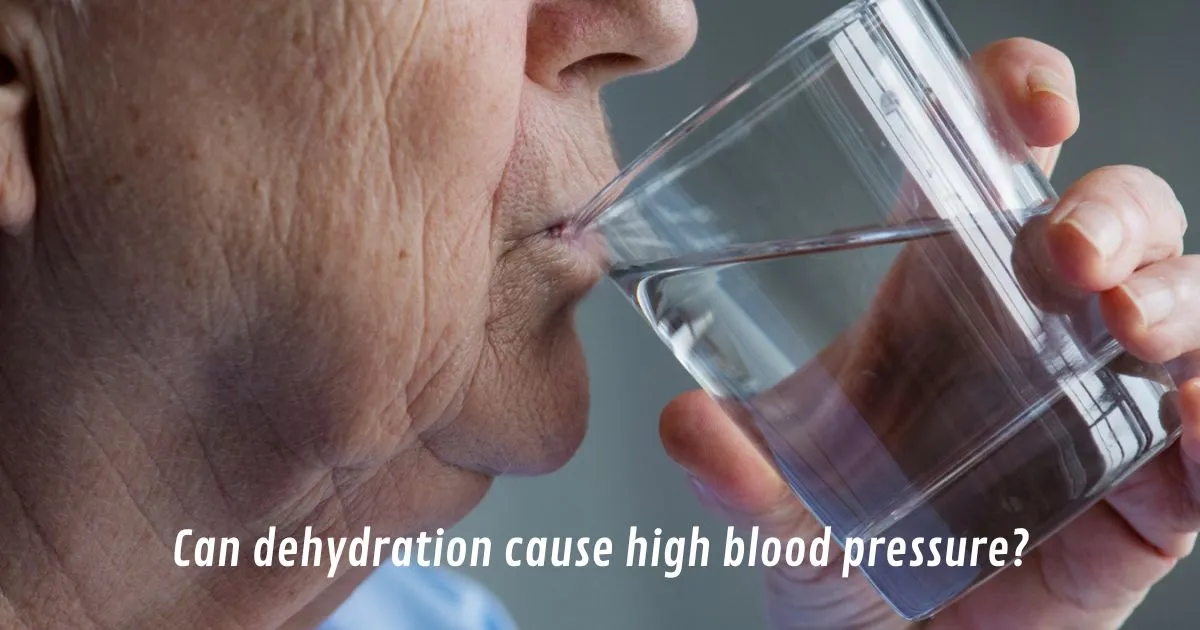Can Dehydration Cause High Blood Pressure? Understanding the Hidden Link
Why You Should Care About Dehydration and Your Blood Pressure
Picture this: you’re outside on a sweltering day, maybe running errands or just enjoying the sun. Hours go by, you forget to drink water, and by the time you get home you feel lightheaded, your heart’s thumping harder than usual, and you notice a dull headache creeping in. Most people brush this off as “just being thirsty.” But here’s the surprising truth: that mild dehydration you shrugged off could be nudging your blood pressure higher than you realize — putting extra strain on your heart and blood vessels.
Table of Contents
If you’ve ever wondered “Can dehydration cause high blood pressure?”, you’re asking a question that deserves a solid answer backed by trustworthy research. Today, you’ll find out exactly how your body reacts when you don’t drink enough, who’s most at risk, and what you can do starting right now to protect your heart.
What Happens to Your Body When You’re Dehydrated
Your body runs on water. Every cell, tissue, and organ depends on it to function smoothly. When you lose more fluid than you take in — whether you’re sweating, breathing in dry air, or forgetting to drink — your blood volume starts to drop.
When your blood volume shrinks:
- Your heart has to pump harder to push the same amount of oxygen around.
- Your blood gets thicker, which makes it tougher to circulate.
- Your blood vessels may constrict to help maintain stable circulation.
According to the Mayo Clinic, even mild dehydration can trigger noticeable changes in your heart’s workload. When the fluid portion of your blood drops, your heart has to pump faster and harder to keep blood flowing.
Here’s a quick breakdown:
| Level of Dehydration | Possible Effects on Your Body |
| Mild | Dry mouth, thirst, slightly thicker blood, slight BP shift |
| Moderate | Dizziness, faster heartbeat, higher risk of high BP |
| Severe | Confusion, dangerously high or low BP, potential organ strain |
Can Dehydration Cause High Blood Pressure? What Science Really Says
So, does science actually back this up? Absolutely — but it’s a bit more complicated than “drink water, fix BP.”
Your body relies on hormones to keep your blood pressure steady. One of those hormones is vasopressin, also called antidiuretic hormone (ADH). When you’re low on fluids, your brain signals your pituitary gland to release more vasopressin to help your kidneys hold onto water. But vasopressin doesn’t just tell your kidneys what to do — it also tightens up your blood vessels. Tighter vessels mean higher resistance, which can raise your blood pressure.
Research published in the American Journal of Hypertension links higher vasopressin levels with elevated BP. A study in Hypertension Research highlighted that mild dehydration can make your blood more viscous (thicker), which increases vascular resistance.
If you’re already prone to high blood pressure, dehydration can make the problem worse. And if you’re managing conditions like high cholesterol or diabetes, dehydration stacks even more stress on your cardiovascular system.
- Related Read: Does Pain Cause High Blood Pressure?
Who’s Most at Risk for Dehydration-Induced Blood Pressure Spikes
Anyone can get dehydrated, but some groups are more vulnerable to seeing their BP rise when fluids drop.
You’re at higher risk if you:
- Are older — seniors naturally have a lower sense of thirst, according to the National Institute on Aging.
- Take diuretics for heart conditions or high BP.
- Work outside in hot climates.
- Exercise heavily without proper hydration.
- Are sick with vomiting, fever, or diarrhea.
People living with diabetes need to be especially cautious. High blood sugar can pull more fluid from your tissues, leaving you dehydrated faster than you might expect.
- Helpful: Understanding Blood and Sugar Levels
How to Know If Dehydration Is Raising Your Blood Pressure
How do you know if you’re just thirsty — or if your lack of water is putting your heart at risk?

Here are some signs to watch for:
- Dry, sticky mouth and dry skin
- Dark-colored urine or urinating less often
- Dizziness or lightheadedness when standing up
- Headache or difficulty focusing
- Rapid heartbeat
One smart step? Check your BP at home. If your numbers are unexpectedly high and you’ve been sweating, busy, or skipping water, dehydration could be the hidden reason.
According to the Cleveland Clinic, dehydration sometimes causes sudden spikes that drop back down once you rehydrate — but if you’re seeing high readings often, don’t guess. Talk to a qualified healthcare provider.
How to Stay Hydrated and Keep Your Blood Pressure in Check
The fix isn’t complicated — but it does take consistency. Here’s how you can protect your heart from dehydration’s sneaky effects:
Practical Hydration Tips
- Drink before you’re thirsty. By the time you feel thirsty, you’re already slightly dehydrated. Sip water steadily through the day.
- Eat water-rich foods. Add watermelon, cucumbers, oranges, and celery to your snacks.
- Carry a refillable bottle. If it’s within arm’s reach, you’re more likely to drink.
- Watch your caffeine and alcohol. Both can pull fluid from your body, so balance them with extra water.
- Hydrate when you’re sick. Fever, vomiting, and flu-like illnesses can drain fluids fast.
- Must-Read: Can Flu Cause High Blood Pressure?
How Much Water Is Enough?
The CDC suggests about 11.5 cups daily for women and 15.5 cups for men — including fluids from food. You might need more in heat or when active.
Other Surprising Triggers for High Blood Pressure
Dehydration isn’t the only hidden culprit that can push your numbers up. Everyday issues can sneak up on you:
- Pain: When you’re in pain, your body releases stress hormones that can tighten blood vessels.
Does Pain Cause High Blood Pressure? - Cholesterol: High cholesterol can stiffen arteries, making your heart work harder.
Can High Cholesterol Cause Headaches? - Blood Sugar: Unstable sugar levels can stress your heart and vessels, too.
How Long Does Sugar Stay in Your System?
Managing your health holistically means tackling all these angles — hydration is just one piece of the puzzle.
When to See a Doctor for High Blood Pressure and Dehydration
Sometimes, drinking more water isn’t enough. If you experience:
- Extreme confusion or fainting
- Rapid heartbeat that won’t slow down
- Blood pressure that stays high even after rehydrating
…it’s time to call a doctor. Chronic dehydration and high BP can signal an underlying condition that needs real medical care. The American Heart Association reminds you: don’t wait when it comes to heart health.
Pro Tip: Keep a hydration and BP journal for a week. Track your water intake, urine color, and BP readings — you might spot patterns that help your doctor fine-tune your care.
FAQs
Can dehydration cause sudden high blood pressure?
Yes — mild dehydration can make your blood thicker and trigger your vessels to tighten, which may cause a temporary spike in BP.
How much water should I drink daily to prevent high blood pressure?
While needs vary, the CDC recommends about 11.5 cups daily for women and 15.5 cups for men — including fluids from food.
Is low blood pressure more common with dehydration?
Explain paradox: mild dehydration may tighten vessels and raise BP, but severe dehydration can cause a dangerous drop in BP, even shock.
Does caffeine make dehydration worse and raise BP?
Too much caffeine can slightly increase urination. Combined with dehydration, it might compound a BP spike. Enjoy coffee in moderation and balance it with extra water.
Conclusion: Protect Your Heart — Stay Hydrated, Stay Healthy
Dehydration might seem harmless, but it can quietly push your blood pressure to risky levels. Listening to your body, staying hydrated, and knowing when to get medical help can make a big difference for your heart health.
If you found this guide helpful, share it with a friend or family member who might need a reminder to drink up! For more smart heart health tips, check out our related articles:
- Does Pain Cause High Blood Pressure?
- Can Being Sick Cause High Blood Pressure?
- Understanding Blood and Sugar Levels
Disclaimer
This article is for general information only and does not substitute for professional medical advice. Always talk to your doctor about any health concerns.

